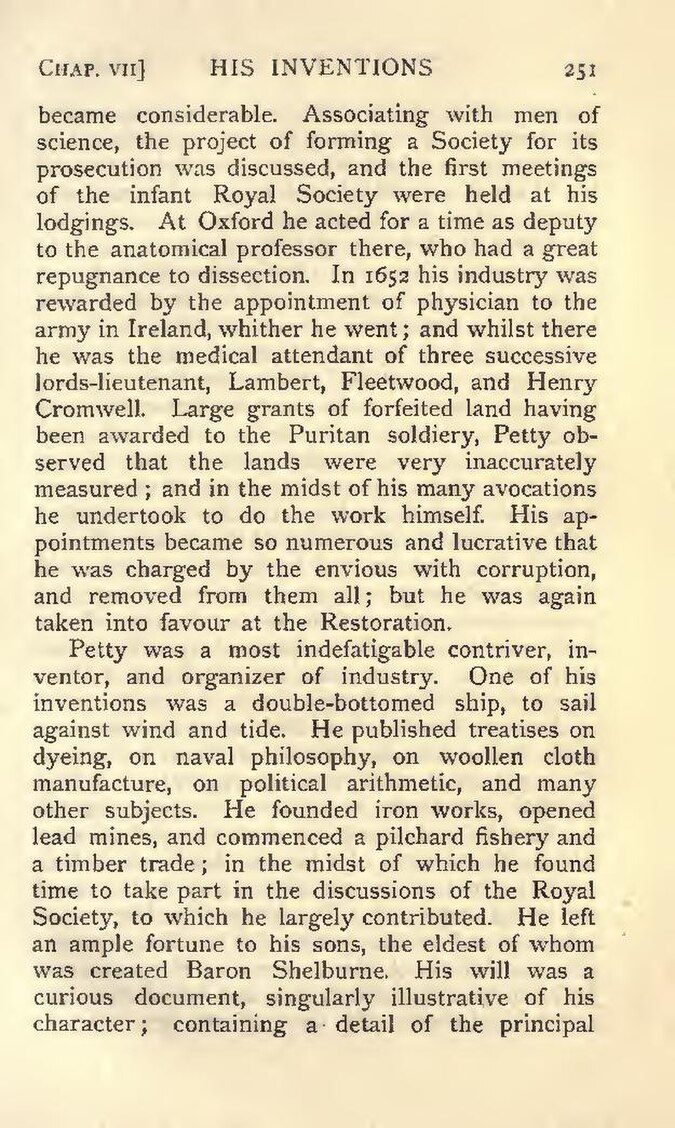became considerable. Associating with men of science, the project of forming a Society for its prosecution was discussed, and the first meetings of the infant Royal Society were held at his lodgings. At Oxford he acted for a time as deputy to the anatomical professor there, who had a great repugnance to dissection. In 1652 his industry was rewarded by the appointment of physician to the army in Ireland, whither he went; and whilst there he was the medical attendant of three successive lords-lieutenant, Lambert, Fleetwood, and Henry Cromwell. Large grants of forfeited land having been awarded to the Puritan soldiery, Petty observed that the lands were very inaccurately measured; and in the midst of his many avocations he undertook to do the work himself. His appointments became so numerous and lucrative that he was charged by the envious with corruption, and removed from them all; but he was again taken into favour at the Restoration.
Petty was a most indefatigable contriver, inventor, and organizer of industry. One of his inventions was a double-bottomed ship, to sail against wind and tide. He published treatises on dyeing, on naval philosophy, on woollen cloth manufacture, on political arithmetic, and many other subjects. He founded iron works, opened lead mines, and commenced a pilchard fishery and a timber trade; in the midst of which he found time to take part in the discussions of the Royal Society, to which he largely contributed. He left an ample fortune to his sons, the eldest of whom was created Baron Shelburne. His will was a curious document, singularly illustrative of his character; containing a detail of the principal
